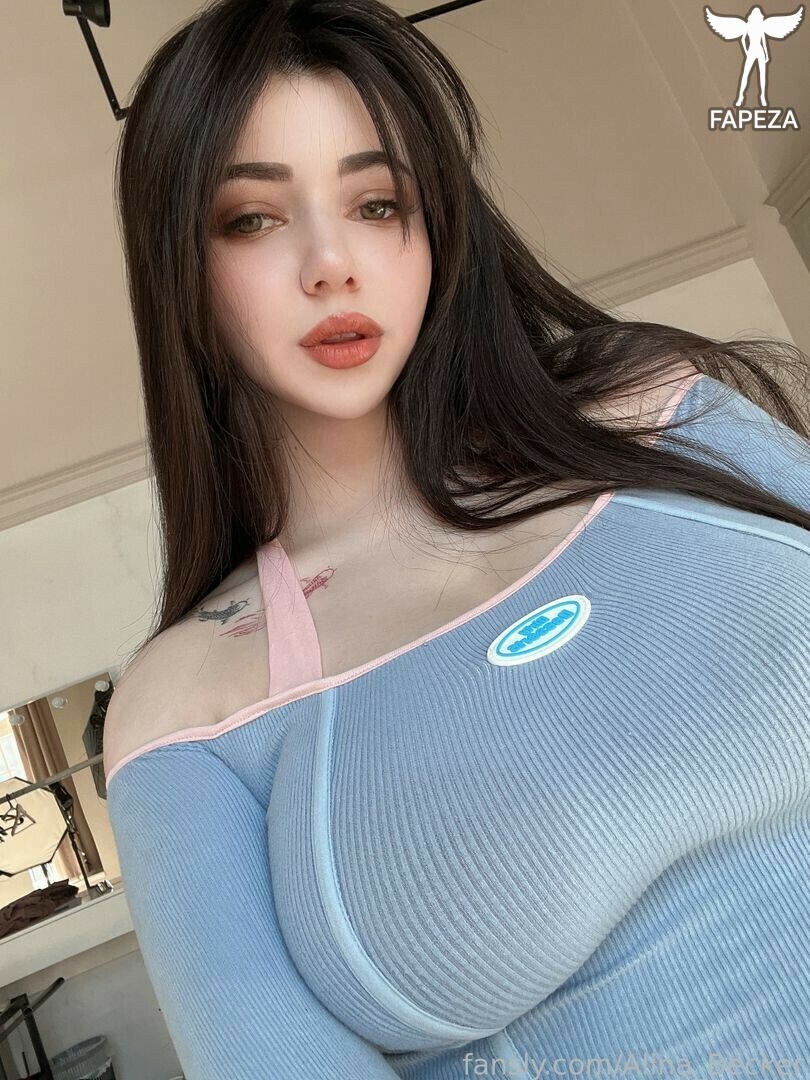Is beauty truly in the eye of the beholder, or does the digital age dictate its terms? The proliferation of content creators like Alina Becker compels us to confront this question, as her work, and the subsequent controversies surrounding it, force us to examine the complex interplay between artistry, exploitation, and the evolving landscape of online expression.
Alina Becker, a name now synonymous with both creative flair and the darker underbelly of the internet, has carved a niche for herself as a content creator and model. Her reputation rests on a foundation of striking beauty and a demonstrable artistic talent, most notably in the realm of cosplay. Her meticulously crafted looks, inspired by popular characters from various media, have garnered her a substantial following on platforms like Instagram and TikTok. This success, however, exists in stark contrast to the realities of content creation in a space where privacy can be fleeting and the lines between admiration and exploitation are often blurred.
| Category | Details |
|---|---|
| Full Name | Alina Becker (Publicly known name) |
| Profession | Content Creator, Model, Cosplayer |
| Known For | Cosplay transformations, striking beauty, online presence on platforms like Instagram and TikTok, and presence on OnlyFans. |
| Notable Work | Intricate cosplay recreations of popular characters, engaging content shared on social media platforms. |
| Social Media Platforms | Instagram, TikTok, OnlyFans, and other platforms where she shares her content and engages with her audience. |
| Controversies | Exposure to unauthorized content, privacy violation, and the ethical considerations surrounding the sharing and distribution of personal content. |
| Website (Reference) | Alina Becker's Instagram (Example - Replace with a verified source, if available.) (Please note, direct links to private content or websites promoting the unauthorized sharing of private content are omitted.) |
The allure of platforms like Instagram and TikTok lies in their ability to connect creators with a global audience. For Alina Becker, these platforms served as launchpads for her cosplay endeavors, allowing her to showcase her talent and build a dedicated fanbase. Each meticulously crafted look, born from hours of planning and execution, became a testament to her artistic vision. These platforms provided a space where she could share her passion and engage with her followers, fostering a sense of community around her work. However, the same platforms that offered opportunities for creative expression also presented inherent risks, particularly the potential for content to be misused or shared without consent.
- Alluring Beauty Lindsay Lohan No Makeup Revealed
- Simon Cowells Kids The Next Generation Of Superstars
The rise of OnlyFans and similar subscription-based platforms introduced a new dimension to the creator economy. These platforms offered creators like Alina Becker the ability to monetize their content directly, providing a means of financial support and a space to curate their work. However, the very nature of these platforms, which involve the exchange of intimate content for financial compensation, opened the door to a host of ethical considerations and legal challenges. The promise of direct monetization was coupled with the constant threat of unauthorized distribution, a practice that has become increasingly prevalent in the digital age.
The term OnlyFans leaks refers to the unauthorized sharing of content meant exclusively for paying subscribers. This practice, often carried out on various platforms, including those that specialize in the distribution of adult content, is a direct violation of the creator's intellectual property rights. It not only undermines the creator's ability to earn a living from their work but also represents a profound invasion of privacy. The consequences of these leaks can be far-reaching, affecting a creator's reputation, their emotional well-being, and their future prospects.
Websites like Gotanynudes.com, known for hosting a vast collection of adult content, frequently feature leaked images and videos, often without the consent of the individuals involved. These platforms exploit the work of creators by distributing content that was intended for a select audience. This practice contributes to a climate of exploitation, where the value of a creator's work is diminished, and their privacy is disregarded. The constant availability of such content serves to normalize the unauthorized sharing of private material, further compounding the challenges faced by content creators.
- 2024 George Clooney Welcomes New Additions To His Family
- Unveiling The Net Worth Of Renowned Actor Josh Lucas
The ethical implications of these practices extend beyond the individual creators affected. The normalization of leaks and unauthorized sharing promotes a culture of disrespect for intellectual property and privacy. It also encourages a predatory environment where individuals are incentivized to exploit the work of others for their own gain. This, in turn, discourages creativity and undermines the potential for meaningful artistic expression within the digital landscape.
The focus on Alina Becker, in this context, is not meant to solely highlight her, but rather to use her situation as a reflection of larger problems within the creator economy. She is a representative of the many content creators who face the challenges of protecting their work, maintaining their privacy, and navigating the complex ethical issues inherent in online content creation. The prevalence of leaked content, coupled with the often-aggressive nature of online discussions, creates a climate of fear and anxiety for many creators.
The unauthorized distribution of content, whether it be photos, videos, or any other form of digital media, is an ongoing battle. Platforms must develop robust systems to detect and remove leaked content. Furthermore, legal frameworks must be strengthened to effectively address the perpetrators of these violations. Education is critical to fostering a greater awareness of the ethical considerations associated with online content and promoting responsible online behavior. The goal is to foster a culture where creators are protected and their work is respected.
The challenges faced by creators, such as Alina Becker, are symptomatic of a larger societal problem: a lack of respect for privacy and intellectual property in the digital age. The ease with which content can be shared and distributed online has created a situation where the rights of creators are often disregarded. This requires a multifaceted approach, encompassing technological solutions, legal reforms, and educational initiatives.
The situation also raises questions about the responsibility of platforms that host and facilitate the sharing of user-generated content. These platforms should implement measures to prevent the distribution of unauthorized content. They must also take swift action when such content is identified. Greater transparency and accountability are necessary to hold these platforms responsible for the content shared on their sites.
The legal and ethical implications of content leaks go beyond a simple violation of copyright. The unauthorized sharing of intimate content can have devastating consequences for the individuals involved, leading to emotional distress, reputational damage, and even real-world threats. Therefore, it is important to view the issue as a matter of privacy and personal safety. Victims of these situations need support. They need access to resources that can help them navigate the legal and emotional fallout of these experiences.
The narrative surrounding Alina Becker and others like her underscores the necessity of a more nuanced and ethical approach to online content creation and consumption. It emphasizes the need for respect, understanding, and a commitment to protecting the rights of creators. The future of content creation hinges on our ability to address these challenges effectively, creating a digital landscape that is both innovative and safe.
The digital world presents both opportunities and threats. As creators like Alina Becker continue to navigate this complex environment, it is imperative that we collectively confront the challenges and champion the values of respect, privacy, and artistic integrity. Only then can we ensure that the digital space remains a place where creativity can flourish without compromising personal safety or ethical considerations.
This issue demands critical attention. It forces us to reassess how we interact with each other, and how we define morality in the digital age. It calls for reflection on the values we hold dear, and on our responsibility to create a more just and secure digital environment.
The story of Alina Becker serves as a microcosm of the broader challenges faced by content creators in the 21st century. It serves as a cautionary tale and a call to action, urging us to strive for a digital landscape where creativity can thrive, and individual rights are protected.
- Is Yuja Wang Married Unraveling The Personal Life Of The Acclaimed Pianist
- Antonio Banderas Exploring His Captivating Childhood


